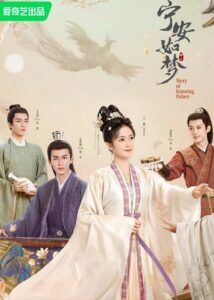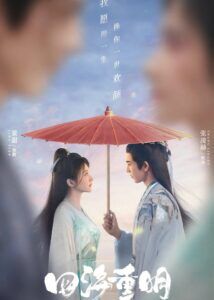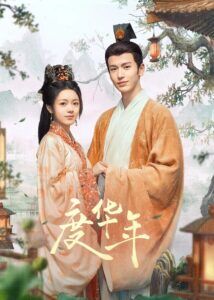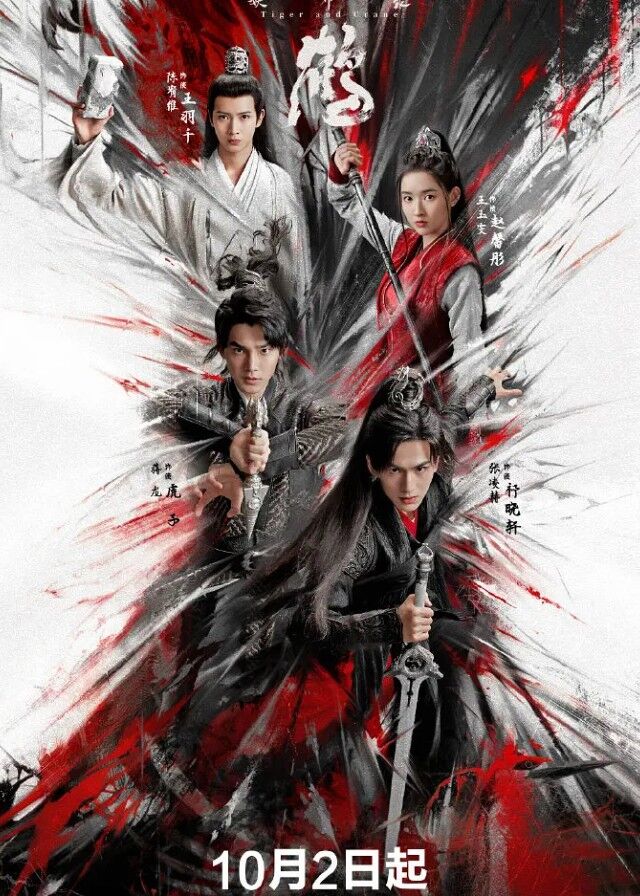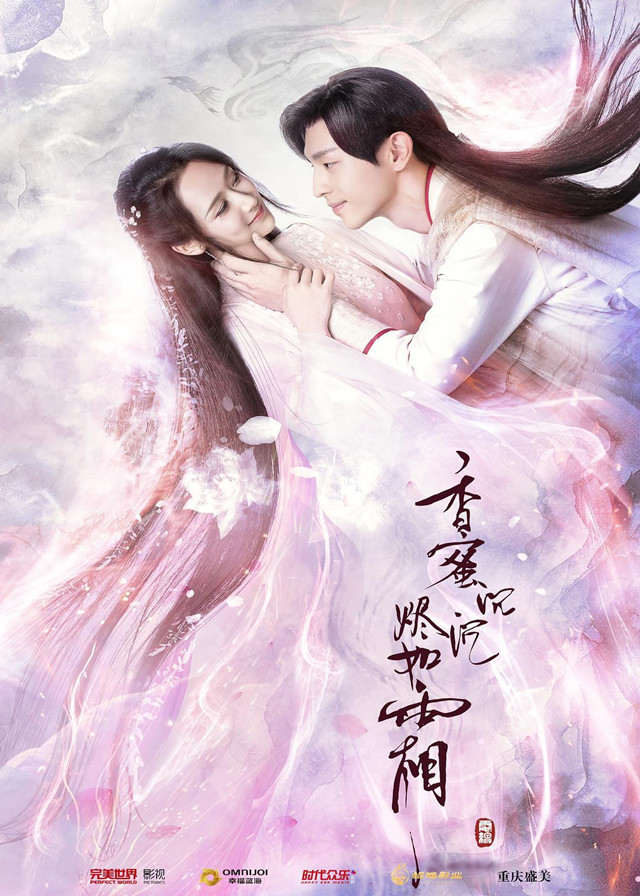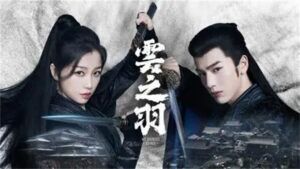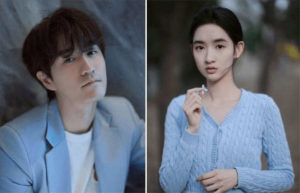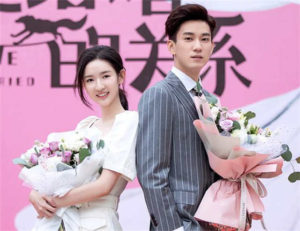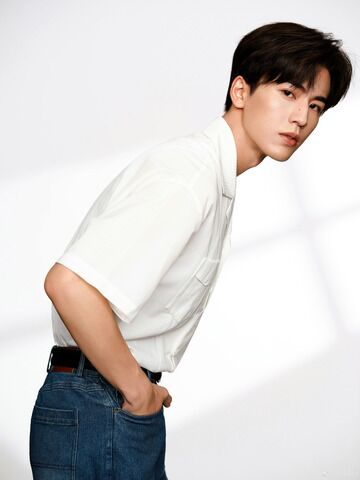Tiger and Crane Episode 26 Recap
> Tiger and Crane Recap
The Imperial Preceptor, asserting his duty, approached Wang Yuqian in the dead of night, explaining that Qianyu State faced a severe catastrophe and that if Wang Yuqian could save the people from their misery, the late emperor would be proud. Wang Yuqian expressed his lifelong confusion, questioning his identity and purpose, to which the Imperial Preceptor responded that true understanding lies in knowing one's desires and pursuing them steadfastly.
He detailed the widespread famine and chaos gripping Qianyu State, urging Wang Yuqian not to ignore the suffering. Though acknowledging that forcing Wang Yuqian to release his divine power was a gamble, the Imperial Preceptor insisted it was a necessary one. Wang Yuqian, suspicious of the Imperial Preceptor's true intentions, was met with the Imperial Preceptor's feigned sleeplessness and a casual visit.
The Imperial Preceptor then invoked the principle that people adore their ruler when they live in peace, suggesting that the nation's fate would soon rest on Heaven's will. Wang Yuqian challenged this, asking what would happen if he defied Heaven's will. The Imperial Preceptor reminisced about the late king's virtuous reign and his decision to release the Qiling God to save the people, hailing it as a blessing.
Wang Yuqian curtly dismissed their long-standing relationship, but the Imperial Preceptor reminded him of the lessons from his youth, including the three cardinal guides and five constant virtues. Wang Yuqian countered by reminding him of the reciprocal duties of ruler and subject, to which the Imperial Preceptor stressed the sage's teaching that "the people come first, the country second, and the ruler last." He warned that without this sacrifice, Qianyu State would descend into a living purgatory.
Wang Yuqian declared he would die for the cause if it could truly save the people but not if it merely led to failure and mockery. The Imperial Preceptor reassured him of his divine protection and swore that if Wang Yuqian perished, he would follow him in death. Wang Yuqian surmised that in the Imperial Preceptor's heart, their lives were insignificant compared to the survival of Qianyu State, a point the Imperial Preceptor readily affirmed.
Wang Yuqian, however, asserted his desire to live his own life and pursue his own interests, feeling no need to become an immortal, a sentiment the Imperial Preceptor dismissed as selfish. The next day, as the ritual commenced, the Imperial Preceptor ordered Wang Yuqian to be tied to the Lightning Pillar. Meanwhile, in the prison, Hu Zi and Zhao Xintong speculated about the Imperial Preceptor's treachery, wondering if he was responsible for Wang Yuqian's father's fate.
Xiao Yunzi, also imprisoned, dismissed their theories, pointing out the Imperial Preceptor's past loyalty and refusal to usurp the throne. They overheard guards discussing Wang Yuqian being led to the Lightning Pillar. Xiao Yunzi explained that the Lightning Pillar was a sacred artifact of Qianyu State, used to attract or repel lightning, and that the Imperial Preceptor intended to forcefully extract Wang Yuqian's divine power. Realizing the grave danger, Zhao Xintong feared Wang Yuqian would be killed.
With urgency, Xiao Yunzi used Zhao Xintong's hairpin to pick the lock, allowing them to escape and rush to save their friend. Wang Yuqian, suspended from chains on the Lightning Pillar, somberly addressed the onlookers, expressing a hope that his death might at least grant him a semblance of kingly dignity, leaving his judgment to history. Hu Zi, Zhao Xintong, and Xiao Yunzi burst into the ceremony.
Xiao Yunzi, identifying himself, apologized for his delayed arrival, while the Imperial Preceptor angrily demanded the "outsiders" leave. Xiao Yunzi retorted, calling the Imperial Preceptor a fool for blindly trusting in gods and forgetting that humans can conquer nature. The Imperial Preceptor branded Xiao Yunzi a heretic, defending Wang Yuqian's sacrifice as a righteous act. Hu Zi, however, vehemently declared that Wang Yuqian's life was more important than any perceived righteousness and vowed to protect him.
Despite Wang Yuqian's pleas for them to flee, Hu Zi stubbornly refused, even reminding Wang Yuqian of a small debt. Hu Zi demanded Wang Yuqian be released, but the Imperial Preceptor remained resolute, proclaiming he would see the ceremony through even as a ghost. As Hu Zi continued to press, lightning struck the Lightning Pillar, and a brilliant golden lotus shape emerged from Wang Yuqian's body.
Amidst the gasps of the crowd, the lotus transformed into the Qiling God, prompting collective reverence and welcoming cries from the assembled people. The Qiling God then cast a spell, causing everyone present to fall into a deep slumber, save for Hu Zi, whose unique constitution allowed him to remain conscious. Hu Zi immediately confronted the deity, pleading for his friend's life and questioning how a true god could demand such a sacrifice.
The Qiling God explained that by borrowing a mortal body, it could fulfill the desires of the people of Qianyu State. Hu Zi vehemently rejected this, asserting that Wang Yuqian's life belonged to him alone and that the Qiling God had no right to decide his fate. The deity dismissed mortal emotions as illusions, arguing that sacrificing one life to save a nation and its people was a greater value.
Hu Zi scorned this notion of value, declaring the Qiling God unworthy of its title for such actions. Unfazed by warnings of divine wrath, Hu Zi defiantly proclaimed his belief that human will could triumph over fate, vowing to strike down any god or Buddha who stood for injustice. The Qiling God, calling Hu Zi arrogant, then scoffed at his challenge, but reacted with surprise when Hu Zi produced the Phurba.
Hu Zi declared that just as the Phurba slew the Demon Emperor five centuries ago, it would now avenge Wang Yuqian by killing the "fake god." Despite his valiant efforts, Hu Zi was ultimately overwhelmed and knocked unconscious. After Hu Zi's confrontation, the Qiling God seemed to come to a profound realization and re-entered Wang Yuqian's body. Wang Yuqian slowly regained consciousness within a virtual world, initially disoriented and calling out for his father, Hu Zi, Zhao Xintong, and Xiaoxuan.
A small, childlike figure materialized, revealing itself as the Qiling God, which had resided within the Wang family for generations. Wang Yuqian, surprised by its appearance, inquired about other shadowy figures surrounding them, which Qiling God explained were the manifestations of people's desires, the very root of human suffering and sin. Wang Yuqian demanded to know why the Qiling God had continually inhabited the consciousness of the Wang family.
The deity revealed a 500-year-old contract with Wang Qianyu, the founder of Qianyu State, who sought to establish a lasting nation and protect its people. In exchange for its aid in founding the state, the Qiling God's consciousness would pass down through the Wang family, choosing a vessel in each generation, which consequently shortened their lifespans, ensuring none lived past sixty.
Wang Yuqian expressed his indignation at being a "prisoner" of this contract, but Qiling God questioned what would become of Qianyu State and its ancestors' wishes without this divine protection. Wang Yuqian then highlighted the contradiction of being told people worshipped their own desires while his family supposedly relied on divine consciousness for governance. The Qiling God confessed that for the past five centuries, it had remained in secluded cultivation, merely observing the world and never actually intervening.
The so-called "divine blessings" were merely a spiritual comfort for the people. The true prosperity of Qianyu State over five hundred years, it asserted, was due to the diligent efforts and wise governance of the Wang family and the tireless labor of its countless citizens; it was human effort, not divine power, that achieved it, as the power of humans is truly infinite. The Qiling God then formally terminated its ancient contract with the Wang family, declaring Wang Yuqian free.
It imparted a final piece of advice: no matter the circumstances, he must always follow his heart, for human effort can achieve anything. The deity then departed, leaving Wang Yuqian to find answers to other questions on his own. Wang Yuqian awakened and immediately roused a groggy Hu Zi, who, having believed his friend dead, boasted about fighting a god for him.
Wang Yuqian then revealed that the termination of the contract meant he had lost his divine powers, including his ability to heal with his brick. Meanwhile, the other people who had fallen asleep during the ceremony also began to stir, all recounting vivid dreams where the Qiling God had enlightened them, revealing that Qianyu State's prosperity was born from their own collective strength, not divine intervention.
The Imperial Preceptor, filled with remorse, fell to his knees, confessing his folly in coercing Wang Yuqian and begging for forgiveness. Wang Yuqian, understanding his genuine concern for the state, helped him rise, declaring that they would rebuild Qianyu State through their united efforts. He then asserted their duty to contribute to resolving the escalating crisis of the Netherworld Sea, which threatened the entire continent. The people and officials enthusiastically pledged their unwavering support.
Hu Zi remarked that the Phurba had been activated during his brief clash with the Qiling God, prompting Xiao Yunzi to acknowledge that the deity still harbored some care for mortals. Recalling Qiling God's final words, Wang Yuqian entrusted the care of Qianyu State to the Imperial Preceptor during his absence, promising to return triumphantly after addressing the crisis at its source.
As Wang Yuqian prepared to depart, Xiao Yunzi and a group of Qianyu State's most capable warriors stepped forward, volunteering to accompany him, Hu Zi, and Zhao Xintong on their perilous journey, swearing their unwavering loyalty despite the foreseen hardships. Meanwhile, Qi Xiaoxuan reported to Eldest Master that his primordial spirit was stable and his power had grown significantly through combined training. Eldest Master, appearing frail, invited Xiaoxuan for a walk.
He asked Xiaoxuan to consider his future encounter with Yan, urging reconciliation and emphasizing the profound tragedy of sibling conflict, which would leave deep regrets if unresolved. Xiaoxuan promised to discuss the matter with Yan. Eldest Master then spoke of his own impending end, having lived for over five hundred years as a magical weapon and seen too much of life and death to fear his own demise.
Xiaoxuan initially dismissed his master's words as a jest, but Eldest Master revealed that it was the seventh day since Xiaoxuan's human body had been restored, marking the time for their farewell. Xiaoxuan realized with anguish that Eldest Master had sacrificed his own life force seven days prior to save Xiaoxuan's primordial spirit from complete dissipation.
Eldest Master gently comforted a grieving Xiaoxuan, explaining that he was merely returning the life given to him by the ancestors to their descendant, thus completing his purpose. His final counsel to Xiaoxuan was to remain loyal to his original aspirations, embody righteousness, and forge ahead fearlessly, ensuring that Eldest Master's sacrifice would not be in vain. Overwhelmed with profound sadness and gratitude, Xiaoxuan vowed to cherish his master's teachings and live well.
As Xiaoxuan tearfully pledged to carry on, Eldest Master transformed back into his true form, a purple-gold brush, losing all consciousness and life, while a silent figure bowed in solemn respect. As Wang Yuqian's group continued their journey, they were temporarily delayed by Hu Zi's stomach issues.
Passing through a valley nearing Fulong territory, Wang Yuqian suggested a stop at Xiangyang Ancient Town for provisions, but a warrior informed him the town had long been deserted, its inhabitants having migrated to other states. Suddenly, they were ambushed by a group of bandits. Zhao Xintong bravely fought back against the assailants, whom a bandit identified as "Qianyu State sorcerers," but she was ultimately overpowered and abducted.
Upon learning of Zhao Xintong's capture by individuals from the State of Julun, Hu Zi, now recovered, suspected the bandits might have set up camp in the abandoned Xiangyang Ancient Town. He cautioned against a rash pursuit, knowing the bandits were familiar with the local terrain, and they decided to cautiously approach the town. Meanwhile, Zhao Xintong regained consciousness to find herself bound and confined, utterly bewildered as to her captors' identities and their reasons for bringing her to this unknown location.





